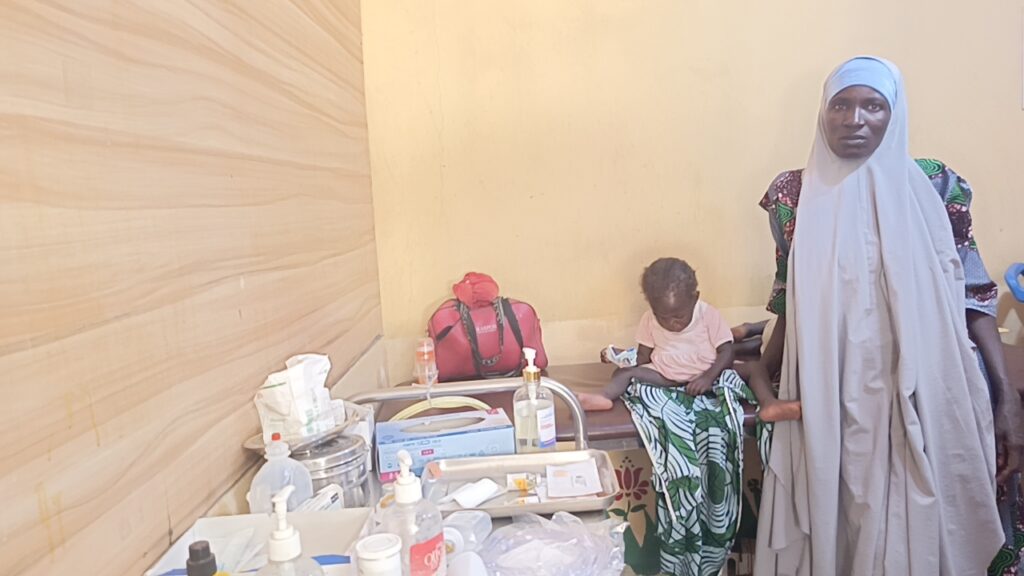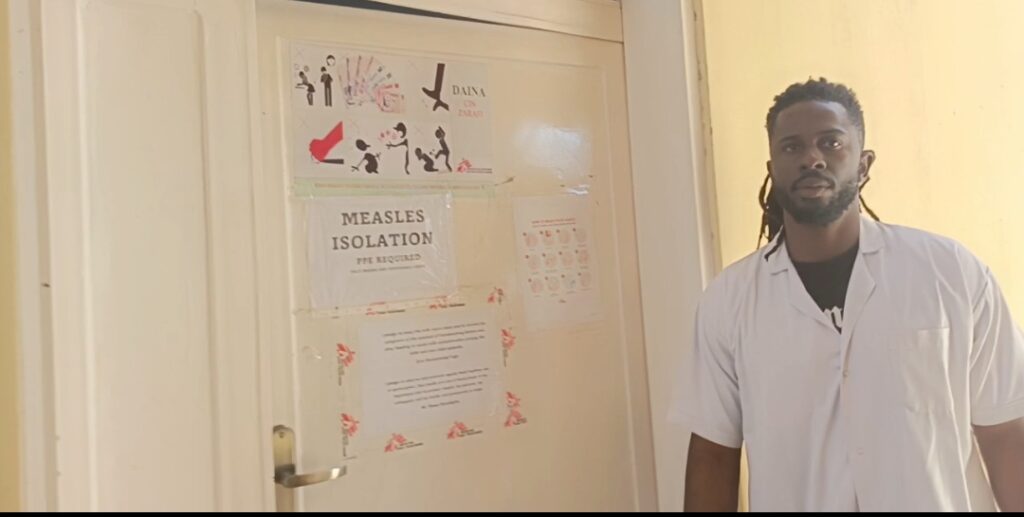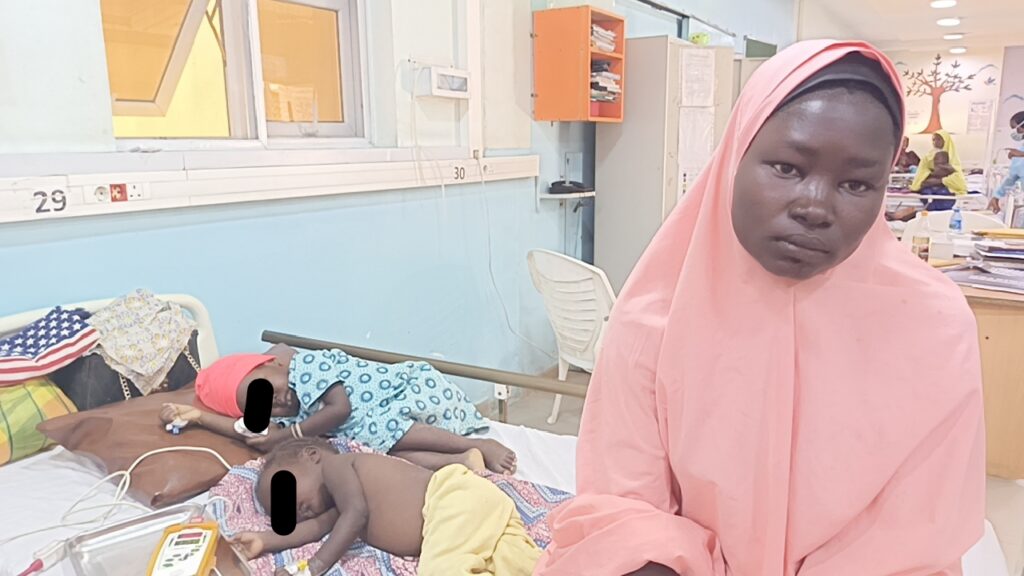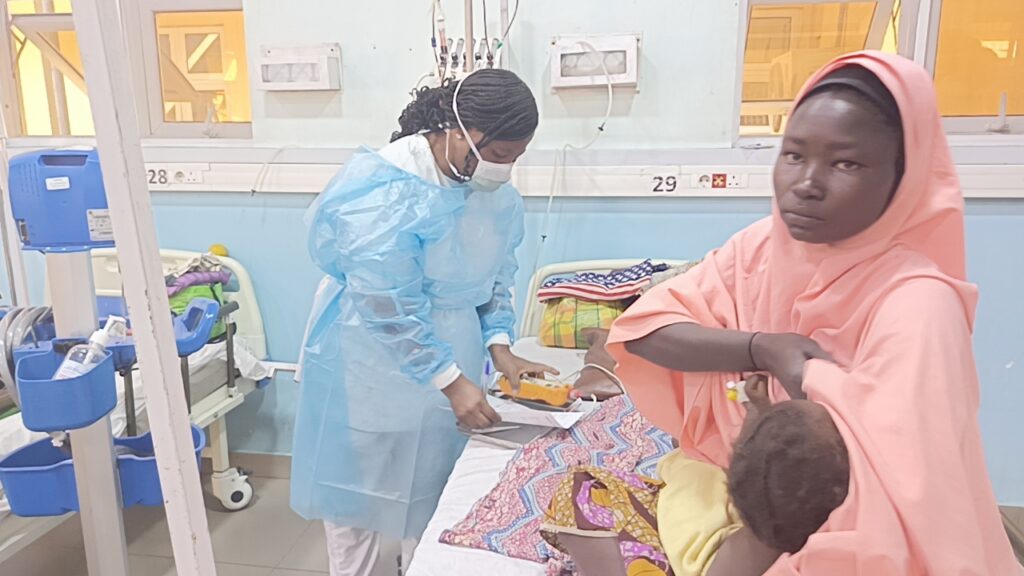Measles, a highly contagious viral disease, is causing alarm in communities in Maiduguri, North East Nigeria.
In the last quarter of 2023, the state recorded a staggering 7,000 measles cases, and the numbers continue to rise, with nearly a thousand more reported since the start of the new year.
Officials of the international medical aid organisation, Médecins Sans Frontières (MSF), have expressed concern, stating that of the 800 cases admitted in 2024, more than 200 patients have received treatment and been discharged. Yet, the outbreak shows no signs of abating.
Dr Jombo Okoli, a physician at the Gwange-3 Primary Healthcare Centre (PHC) in Maiduguri, reports a daily influx of at least 30 suspected measles cases, predominantly among children under ten years of age.

“Measles is one of the most contagious diseases we have, with an infection rate of 17; this means one case can infect more than 17 other vulnerable children. Currently, we have to isolate those that are very sick, which indicates ongoing community transmission…Measles can lead to complications like communal suppression and malnutrition, creating a vicious cycle that further weakens the children’s immunity,” he says.
A HumAngle reporter visited the MSF-managed facility at Gwange-3 and observed medics diligently attending to numerous children afflicted by measles.

The facility, at times overwhelmed by the scale of the outbreak, has had to increase its capacity. “We’ve gone from a 10-bed unit to 22 beds,” Dr Okoli says.
In response to the crisis, the hospital has implemented a pre-triage system at the gate, where officials, including civil security personnel, assist caregivers by using a photo gallery to identify diseases corresponding to their children’s symptoms.
“The idea of the pre-triage is to separate them from other patients not suffering from measles,” Dr Okoli explains.
The patient’s parents speak
Allamin Umar, a resident, watches over his nine-year-old daughter, now stable after a critical illness.
“I brought her here critically ill about six days after she was diagnosed with measles,” he said. “It was a scary moment for us because her mother had travelled out of town. Thank God she is now getting better.”
Falmata Isa, with two daughters in recovery, shares a similar sentiment of cautious optimism.

“They started manifesting signs of ailment, and I thought it was an ordinary fever, but we later discovered they had measles, and one of them had already run short of blood,” she said. “I’ve seen many kids suffer this measles in my area, I never knew two of my children would fall victim.”
Dr Okoli said the outbreak’s persistence highlights the critical need for vaccination.
“If we vaccinate about 95 per cent of the population. , we can suppress the outbreak,” he says.
However, there is a significant barrier: “In Borno state, insecurity-induced lack of access to remote locations for vaccination and other medical services hampers our efforts.”
As the measles crisis unfolds, the resilience and dedication of healthcare workers and the affected communities are put to the test. The MSF facility in Gwange, situated in one of Maiduguri’s most densely populated districts, has become a beacon of hope for many families.

The hospital’s pre-triage initiative serves not only to manage the flow of patients but also to prevent cross-infection. Officials insist that the Gwange-3 PHC’s expansion of bed space is merely a stopgap measure in the face of a greater need for widespread immunisation.
Support Our Journalism
There are millions of ordinary people affected by conflict in Africa whose stories are missing in the mainstream media. HumAngle is determined to tell those challenging and under-reported stories, hoping that the people impacted by these conflicts will find the safety and security they deserve.
To ensure that we continue to provide public service coverage, we have a small favour to ask you. We want you to be part of our journalistic endeavour by contributing a token to us.
Your donation will further promote a robust, free, and independent media.

